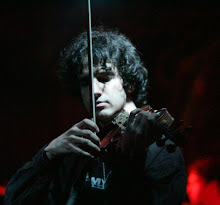
Mahmoud Ahmadinejad is being buffeted on all sides in Iran
It has been a rough fortnight for Mahmoud Ahmadinejad, Iran’s beleaguered president. Mir Hosein Mousavi is proving an unexpectedly tenacious opponent, accusing Mr Ahmadinejad’s government of a catalogue of crimes against the Iranian people. In a Friday sermon at Tehran University, Akbar Hashemi Rafsanjani, a former president and one of Mr Ahmadinejad’s leading foes, ominously called the turmoil “a crisis”. Muhammad Khatami, another former president, has called for a referendum on the disputed presidential election results. Now, only days before his inauguration for a second term, Mr Ahmadinejad has fallen out with a clutch of powerful conservatives whom he had formerly counted as allies.
The latest row revolves around Mr Ahmadinejad’s short-lived appointment of a vice-president. Esfandiar Rahim Mashaei is almost part of the family (his daughter is married to the president’s son), but last year he angered conservatives by suggesting that the Israeli people could be friends of Iran. So when Mr Ahmadinejad tapped him for the vice-presidency, Ayatollah Ali Khamenei, Iran’s supreme leader, immediately told the president to ditch his friend. Mr Ahmadinejad sulkily acquiesced but then defiantly made Mr Mashaei his chief of staff.
The president may have been trying to show that he has a mind and a power base of his own. He may also have been seeking to mollify his reformist opponents by showing the world that he is not quite as fanatical about Israel as he has often sounded. If that was his plan, it flopped. After failing to secure his own man as vice-president, he lost his minister of culture and Islamic guidance, who promptly resigned. Mr Ahmadinejad then fired his intelligence minister, who had criticised Mr Mashaei’s appointment.
At Friday prayers a week after Mr Rafsanjani’s hostile intervention, the president then caught a blast of cold air from one of his conservative supporters, Ayatollah Ahmad Jannati, who heads the powerful Guardian Council. He cautioned Mr Ahmadinejad against rubbing up Mr Khamenei the wrong way. Some have argued that the supreme leader has looked weaker in the past few weeks, but this episode is a reminder that he still wields a lot of clout. Following Mr Jannati’s comments, two-thirds of Iran’s parliament, which has tripped up the president before, signed a letter telling Mr Ahmadinejad to sort himself out and to do Mr Khamenei’s bidding.
It is by no means the first time Mr Ahmadinejad has faced opposition from within the conservative camp. His bombastic millenarian populism has long irked his more pragmatic conservative allies. Hardliners are not always keen on him either. At least one group with links to the baseej militia has said it wants to wrest power from Mr Ahmadinejad, offering its own preferences for government posts.
In the past the president has been cushioned from criticism by Mr Khamenei’s steady support. It is said that Mojtaba Khamenei, the supreme leader’s power-broking son who apparently has pretensions to succeed his father, broadly backs Mr Ahmadinejad. So the president still has powerful allies. Even so, just now these latest ructions within the establishment may matter more for Iran’s future than protests on the street.
Jul 30th 2009 | TEHRAN

Nenhum comentário:
Postar um comentário